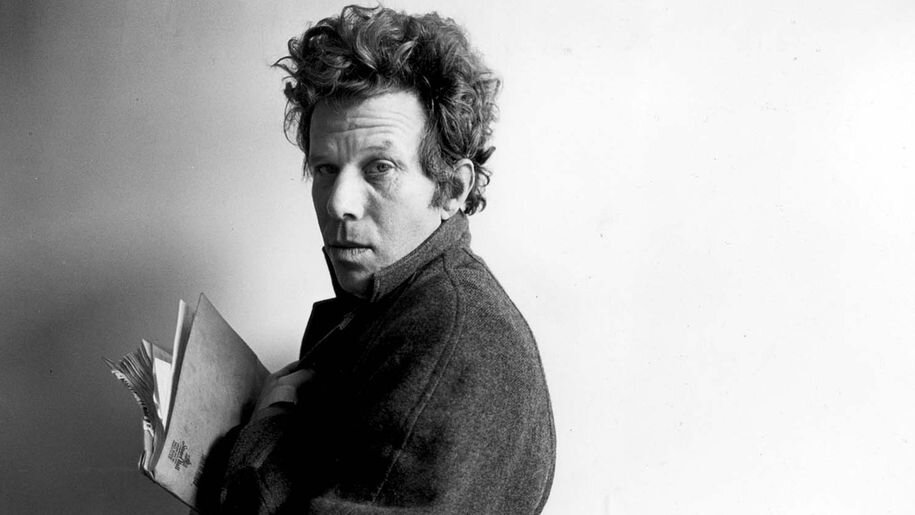Complacency Corrodes: Remembering to Resell Our Relationships
'I've always heard that the ideal marriage should be something of a mystery. That your husband should remain a kind of stranger to you. Someone whose acquaintance you'd like to renew every day.’
Jill Baker, ‘That Uncertain Feeling’
'That Uncertain Feeling' is a fine 1941 romantic comedy directed by Ernst Lubitsch.
Merle Oberon stars as Jill Baker, a society woman in her mid 20s who has developed intermittent hiccups. At a friend’s recommendation, she visits a psychoanalyst. He suggests Jill’s problem may be more than physical.
Psychoanalyst: Most people know nothing about themselves. Nothing. Their own real personality is a complete stranger to them. Now, what I'm trying to do is to introduce you to your inner-self. I want you to get acquainted with yourself. Wouldn't you like to meet you? Don't you want to get to know yourself?
Jill: No. You see I'm a little shy.
After an exploration of Jill’s condition, the psychoanalyst concludes that her hiccups derive from irritation with her husband Larry.
Jill has been happily married to insurance salesman Larry, played by Melvyn Douglas, for 6 years. However, she reflects on the fact that she can’t get to sleep at night because of Larry’s heavy breathing and she is woken every morning by his gargling. She resents that he considers it unnecessary to shave before dinner if they don’t have guests; that when she’s on a diet, he eats steak. She is vexed by the affectionate poke in the stomach he gives her every now and again. And she notices that their conversation when he returns from the office is mostly monosyllabic.
Moreover, when Larry does engage Jill it’s to discuss his less than fascinating work issues. The final straw comes when he asks her to host a dinner for prospective Clients at the recently merged Universal Mattress and United Furniture companies.
'Success in business is fifty per cent hard work and fifty per cent the right cigar.’
Jill determines that her relationship with Larry has run its course. Soon her head is turned by eccentric pianist Alexander Sebastian.
Alexander: Let me warn you that I say what I think. I'm a complete individualist… I'm against Communism, Capitalism, Fascism, Nazism. I'm against everything and everybody. I hate my fellow man and he hates me.
Jill: It sounds rather amusing.
When Jill embarks on an affair with Alexander, Larry is mortified. His colleague advises him to apply his talents in salesmanship to win her back.
‘There’s only one thing you have to sell - yourself. The most important Client you ever had in your life is waiting for you. And her name is Mrs Baker. Now you’re the best salesman in the business. There’s nothing wrong with your marriage. You just have to resell it once in awhile.'
And so Larry plots a series of schemes to defeat the maverick pianist and regain Jill’s affection.
‘You’re going to accuse me of something which I’m going to deny and you’re not going to believe.’
‘That Uncertain Feeling’ is something of an undervalued screwball gem. It’s fascinating to see a mid-century depiction of psychoanalysis, and indeed I was quite taken by the thought of meeting myself. An awkward encounter, I imagine. No doubt we’d find each other rather annoying.
In particular I was impressed by the film’s characterisation of complacency corroding a seemingly happy relationship.
We take each other for granted. We cease to demonstrate interest or solicit opinion. We make assumptions about our present based on our past. We become absorbed in our own plans and preoccupations. Our conversation becomes monotonous, repetitive, predictable. We fail to recognise and rein in our irritating habits.
Complacency can be a variegated condition. I had a colleague who thought he was on tip-top form: engaging, charming, full of bright ideas. But in fact he was only luminous and appealing when he was at work. At home he was an exhausted, inarticulate lump slumped in an armchair watching telly. Eventually it all came to a head.
I’m sure complacency can be just as damaging to professional as personal relationships. On reflection I’m not sure I was the best office mate. I now regret the piles of paper with which I surrounded myself, the communication by Post-It note, the Boots Meal Deal consumed in silence at my desk every lunchtime.
I had a Client once who came in to complain. He was thinking of putting the business up for Pitch. It wasn’t that the team was doing anything wrong exactly. But the meeting that he should have been looking forward to each week had become rather tedious. And he found the ‘metabolism’ of the relationship was just incredibly slow.
'The tragedy of life is often not in our failure, but rather in our complacency; not in our doing too much, but rather in our doing too little; not in our living above our ability, but rather in our living below our capacities.'
Benjamin E. Mays, Civil Rights Leader
Of course complacency can be conquered. We can wake up and be attentive. We can commit our time and invest our attention. We can be interesting and interested. Like Larry, we can resell our relationship.
Perhaps we should all pause to reflect - maybe even book an appointment with ourselves. Those intermittent hiccups we’ve been suffering could indicate a more fundamental malady.
'Conversation don't come easy.
But I've got a lot to say.
If you look at what we once had
Well, it feels many moons away.
But I came for you.
I've dreamt names for you.
It's true.
No one makes me high like you do.
And I craved for you.
I lost sleep with you.
No one loves me quite like you do.’
Lucy Rose, ‘Conversation'
No. 302





















